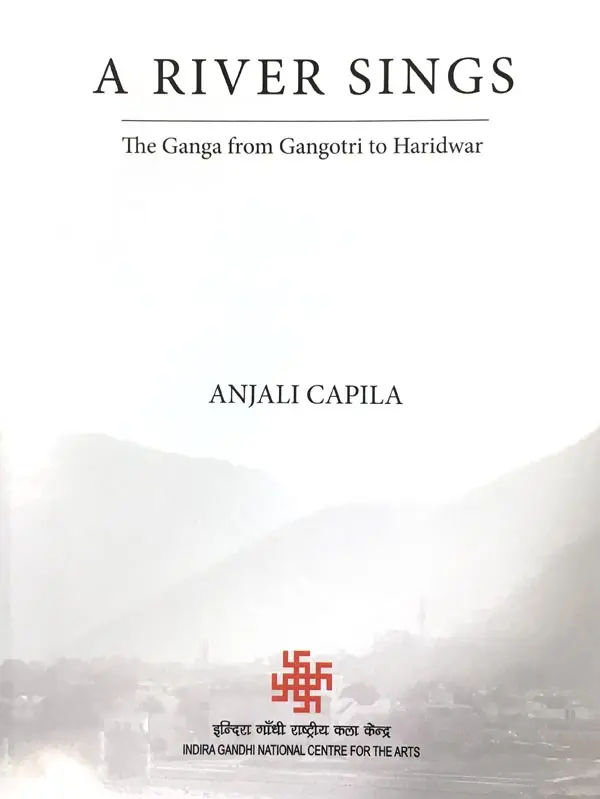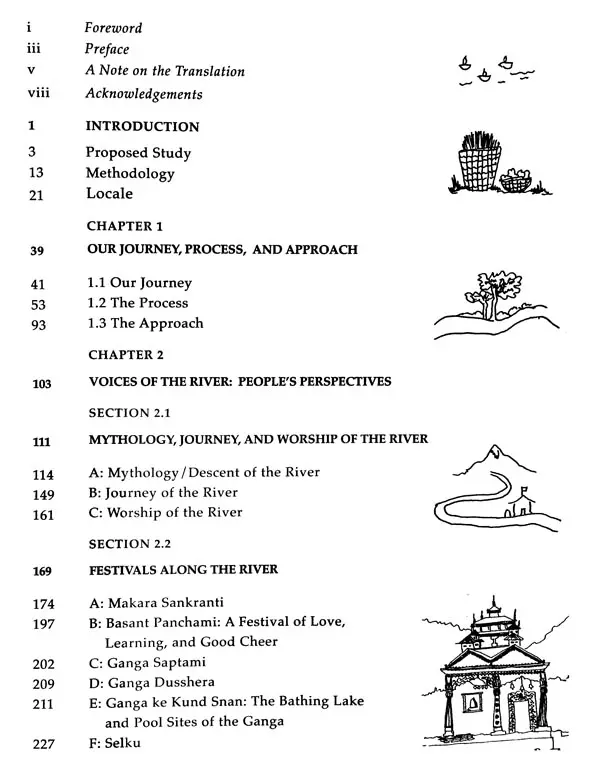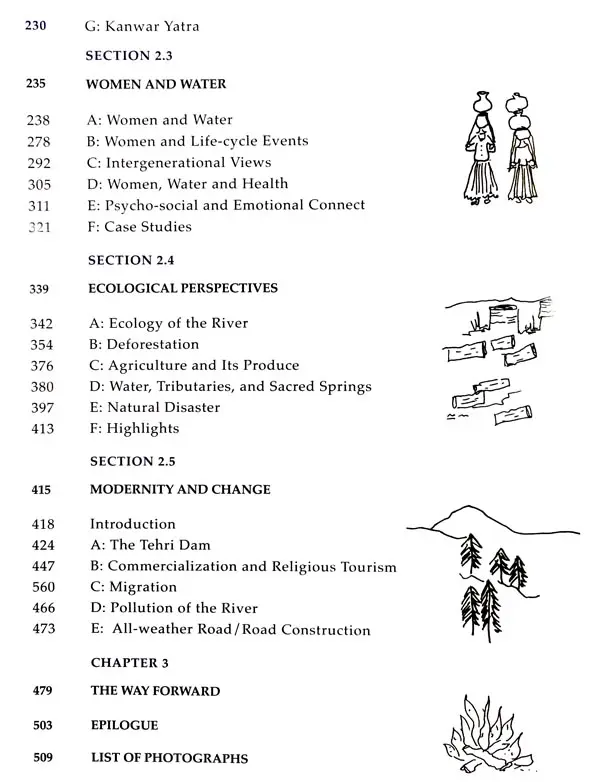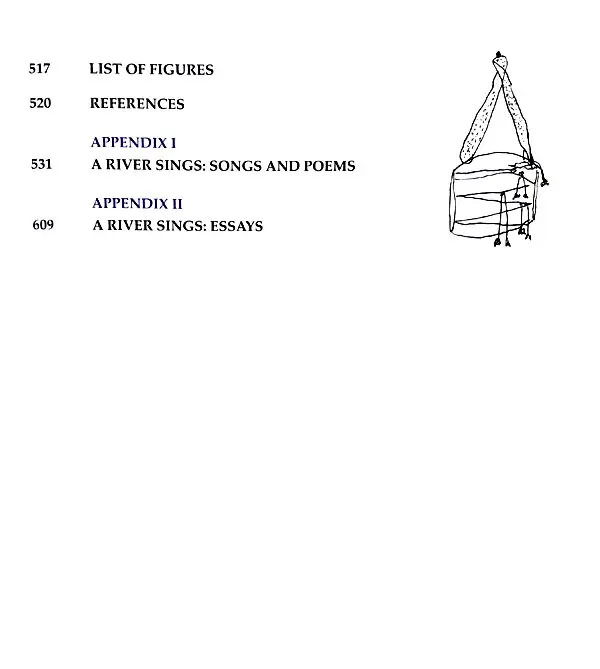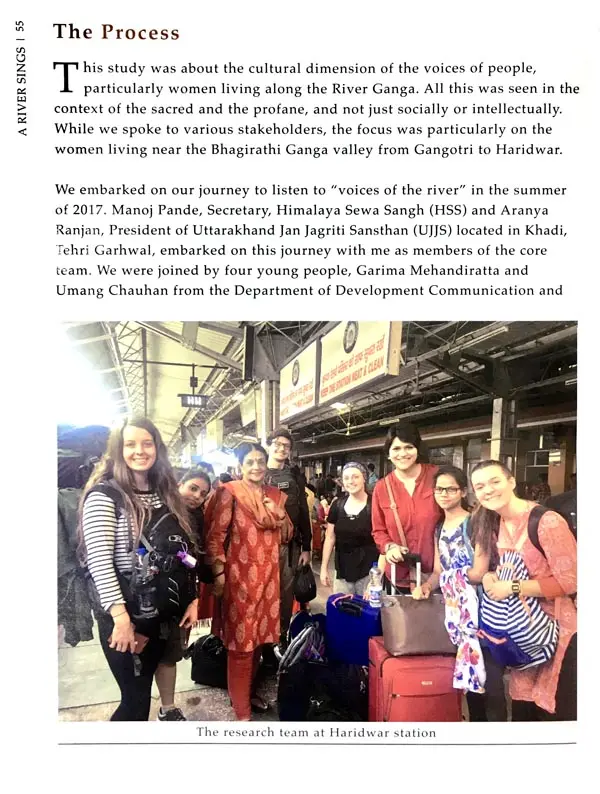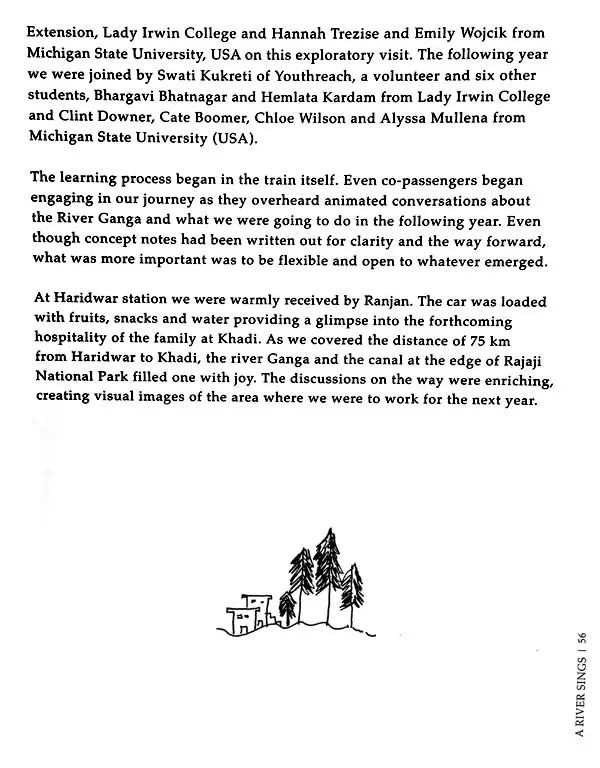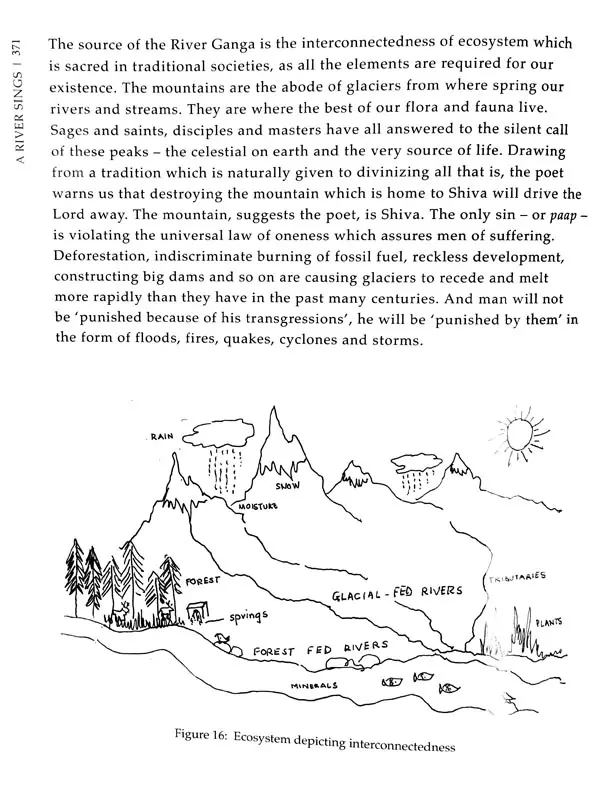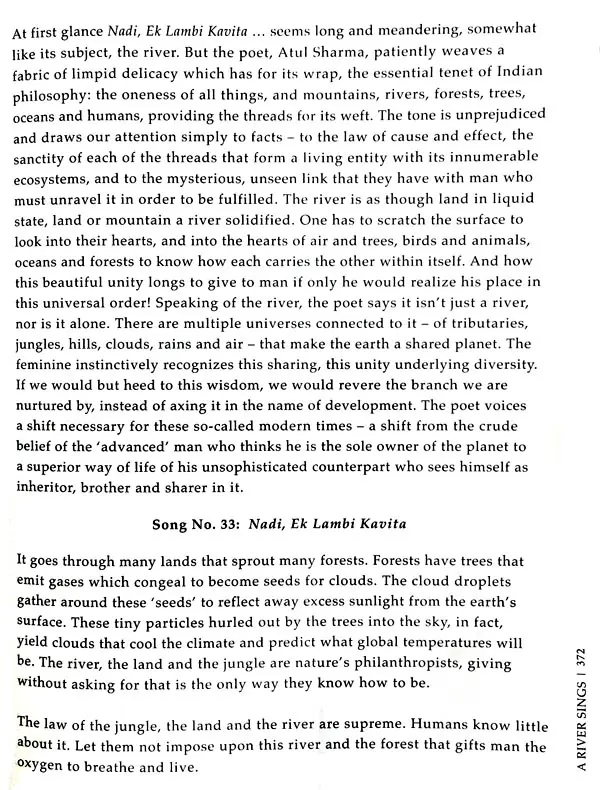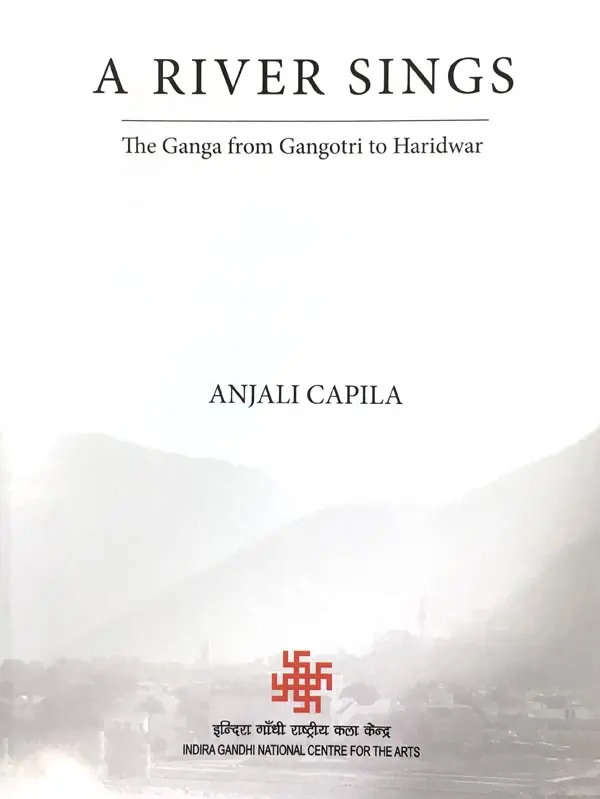
A River Sings The Ganga from Gangotri to Haridwar
Book Specification
| Item Code: | UAM962 |
| Author: | Anjali capila |
| Publisher: | Indira Gandhi National Centre for the Arts |
| Language: | English |
| Edition: | 2022 |
| ISBN: | 9789391045340 |
| Pages: | 624 (Color Illustrations) |
| Cover: | HARDCOVER |
| Other Details | 11.00 X 9.00 inch |
| Weight | 2.79 kg |
Book Description
A River Sings explores the interconnection between the river and the people- primarily the women-who live in the Ganga river valley from Gangotri to Haridwar. Their relationship is an intimate one and as dynamic as the river's waters. Although the river symbolises life and for many is their livelihood, the way she is perceived is far removed from the utilitarian, functional paradigm dominating the world today.
Traversing ecological perspectives as well as aspects of journey, mythology and worship, this book emphasises the lived experience of the women, for whom Ganga is "Ganga meri pyaari Maa": the Divine Mother. It is a valuable record of the voices of communities deeply rooted in the cultural landscape of the upper Ganga valley - particularly since their ecological heritage and way of life are threatened by the onward march of culturally insensitive development practices. The extensive field work is rooted in the notion of participation and wholeness, and is centred on the myriad ways, especially song and storytelling, in which women express their love and reverence for the live-giving waters.
The audio version of the songs and interviews are presented in a USB Drive attached to the book, bringing the author's journey closer to the lives of the readers.
This research is done under the project "Documenting Riverine Cultures" of the Janpada Sampada division of IGNCA
Dr. Capila's major published works have focused on anthropology and communication. Her first book, Images of Women in the Folk Songs of Garhwal Himalayas: A Participatory Research, is a treatise on how songs can be a powerful source for social communication. Her second book, Traditional Health Practices of Kumaoni Women: Continuity and Change, reflects on how modernity and tradition can coexist without losing their essence.
Dr. Capila is Vice President of the Mountain India Peoples Forum, an Executive and Governing Board Member of the Institute of Himalayan Environment Research and Education (INHERE) in Kumaon, and a Trustee of HIMCON in Tehri Garhwal.
The Riverine Culture Project of IGNCA emphasizes on the collection of information on the geographical history of a river and the cultural nitty-gritty that thrives on its bank. The project focuses on the civilization and the culture around a river, which worships the river as a mother and acknowledges her contribution through prayers, sacrifices, fairs, and festivals. IGNCA continuously strives to revive these cultural traditions organizing seminars, conferences and cultural programmes on river banks. We aspire to restore the uniqueness and cultural significance of almost every river of India. So far, in the project titled the Glory of Rivers, research on the Godavari, Krishna, Ganga, and Vyas rivers has been done and cultural conclaves have been organized on the same. IGNCA is trying to revive the tradition of thanking the rivers organizing cultural programmes on rivers like the Yamuna, Kaveri, Narmada, Brahmaputra, Gomti, Damodar, etc. The book- A River Sings: The Ganga from Gangotri to Haridwar is based on a project entitled, 'Documenting a Riverine Culture: The People's
A chance dream of the flowing river-the Ganga-and the emergence of a nebulous goddess-like figure saying 'Just like you listened to the songs of the women of the Garhwal Himalayas, listen to the songs and the voices of this river too,... culminated in the writing of a proposal to the Indira Gandhi National Centre for the Arts (IGNCA). This concept note was approved by the Programme Advisory Committee of the Janapada Sampada Division of the IGNCA headed by Professor Molly Kaushal.
This book, based on the project, 'Documenting Riverine Cultures: The People's Ganga from Gangotri to Haridwar, examines the riverine culture of the Ganga from Gangotri to Haridwar by listening to the voices of the people who live in the Ganga river valley. All this has been seen in the context of the sacred/profane and not merely socially or intellectually. While we spoke with various stakeholders, the focus has been on the women of this region and their relationship with the river which is expressed in their songs and narratives. The framework provides a background, in order to state that the 'Voices of the River' are to be understood as a matter of actual experience, through participation and observation.
Book's Contents and Sample Pages
